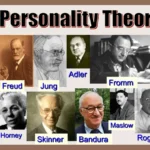At What Age Is Your feel of Self absolutely shaped? knowledge the improvement of Self-idea know-how the development of self-concept is crucial because it explain how individuals come to understand who they’re from adolescence into adulthood. this text seeks to answer the query – while is the development of self idea completed? by means of exploring the key degrees of self-identification formation. Early formative years – The Beginnings of Self-cognizance among the a while of 2-3 years vintage, kids broaden primary self-focus and reputation
They can identify attributes like their own gender and recognize themselves in mirrors or photos. During this time, children start to develop a sense that they are distinct individuals separate from others. Some key developmental milestones include:
- Recognizing one’s own name
- Understanding basic attributes like gender
- Pointing to themselves in photos or mirrors
This early stage marks the beginning of self-concept formation as children learn that they have their own independent existence.
The development of self-concept – Elementary School Years – Learning Who You Are
As children enter grade school between ages 5-10, their self-concept develops through social and academic experiences. During this period:
- Peer relationships and social comparisons become important as kids learn to navigate friendships
- Children internalize feedback and perceptions from teachers, parents, and peers about their competence and skills
- Academic performance in school subjects like reading, writing, and math contributes to forming views about one’s abilities
Table 1. Key the self-concept development during elementary years
| Age | Developmental Milestones |
| 5-7 Years | Begin comparing themselves to classmates and developing self-esteem based on perceived social acceptance and skills |
| 7-9 Years | Self-evaluations become more realistic and multidimensional as children consider multiple aspects of themselves |
| 9-11 Years | Views of academic and physical competence shape self-concept; peer influences strengthen |
The development of self-concept – Adolescence – Identity vs. Role Confusion
During the tumultuous teen years from approximately ages 12-18, adolescents radically re-evaluate who they are through experimenting with different social roles and exploring independence from parents. Key developments include:
- Questioning one’s abilities, traits and values established in childhood
- Forming an identity separate from parents and family through peer relationships
- Trying out non-permanent social roles and lifestyle experiments (styles, activities)
- Integrating physical/sexual maturation into concept of self
- Consolidating self-concept through late high school dependent on romantic relationships and career/college path
The development of self-concept – Emerging Adulthood – Experimenting Toward Stability
The period of “emerging adulthood” from ages 18-25 marks an important transition as individuals separate from parents’ home to independently explore life possibilities through education and career choices.

Case Study
One study surveyed 100 college students and found most were still exploring multiple major and career options, with 65% changing their mind at least once before graduation.
By exploring new roles, lifestyles through temporary jobs or relationships, self-concept remains adaptable yet moves towards greater “self-sufficiency and permanence” by the end of the 20s according to psychologist Erik Erikson’s theory of psychosocial development.
The development of self-concept – Adulthood – Remaining Open to Growth
While self-identity establishes stability on average by a person’s late 20s, new experiences in 30s-40s-50s can produce further growth and change. Life transitions like:
- Marriage
- Parenthood
- Career advancements
- Aging parents
Provide opportunities for reflection and adjustment in how one views themselves. Overall, identity achieves “integrity” and coherence in Erikson’s model by mid-life yet continues evolving overall.
The development of self-concept -Conclusion
There is no single age at which the complex the development of self-concept finishes altogether. While the most dynamic changes occur from childhood through emerging adulthood, individuals’ sense of identity and self remains receptive to new insights throughout their lifespan based on relationships and life events. Overall, modern psychology suggests self-concept establishment is largely completed by a person’s late 20s on average. it is an oversimplification to pinpoint a single age at which development is definitively complete. Throughout adulthood, new social roles like marriage, parenthood and accomplishments provide occasions for further reflection and adjustment. Overall, the formation of self-concept is best understood as an interactive, life-long process influenced continually by relationships and experiences from childhood through senior years.
A takeaway is that exploring “who am I” evolves at different paces for each person, with the most dynamic changes generally concentrated from preschool to emerging adulthood. Gaining insight into this developmental sequence can help individuals understand where they currently are in defining their self-identity and appreciate how uniquely their sense of self may continue growing throughout their lifespan.







